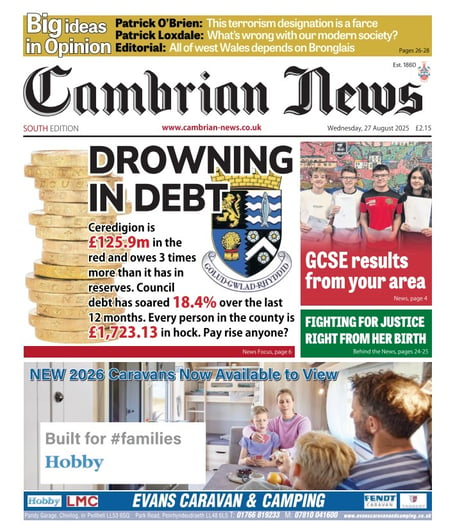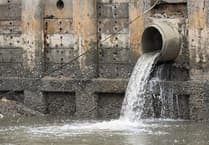When this publication, using data collect or correlated by the BBC’s Shared Data Unit, published a series of reports on the debt levels of Powys, Gwynedd and Ceredigion – similar reports were carried in newspapers across the UK – it did in the public interest.
And interestingly enough, the reports on those debt levels were accepted without equivocation in Powys and Gwynedd. But Ceredigion? Not a chance. Revisionist theory exists there.
There was almost a Trump-like black-is-white response from the Cabinet, putting on a show of unity that the MAGA fans would be proud of. How dare the Cambrian News undermine the financial security of the council!
Let’s be perfectly clear: Ceredigion County Council does not need the Cambrian News to undermine its financial security. It is very capable of doing it for itself.
Ceredigion, one of four Plaid Cymru-controlled councils in Wales, was the worst performing in adding debt and its reserves to debt ratio, of any rural local authority in Wales. The other three Plaid councils – Gwynedd, which reduced its overall debt, Anglesey and Carmarthenshire – all performed far better.
But, as one wise reader of this publication pointed out, the other three councils are actually run by Plaid councillors while Ceredigion is run by officials, and the Plaid councillors there simply do the bidding of those bureaucrats. That theory would certainly explain why the thinking of Gold Command persists to this day, and why the views and opinions of the majority of Ceredigion residents are simply being over-ridden or wholly ignored.
It's interesting to note that at the same Cabinet meeting where the Trump-like opinions of the facts were aired, there was also another financial report for debate.
This second report was on the growing number of Ceredigion residents who can’t or won’t pay their taxes to the council. In 2017, one in 500 were in arrears when it came to payments of council tax. Now, it’s one in 20. If things keep on at this rate, Ceredigion will be £800,000 out of pocket.
Yes, everything has gone up over the eight years for everyone. But back then, the CEO of the council earned £54,000. It’s £142,000 now.





Comments
This article has no comments yet. Be the first to leave a comment.